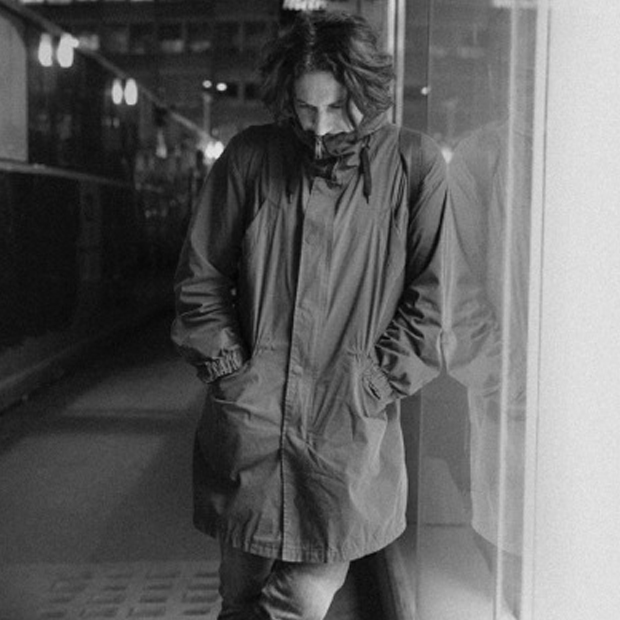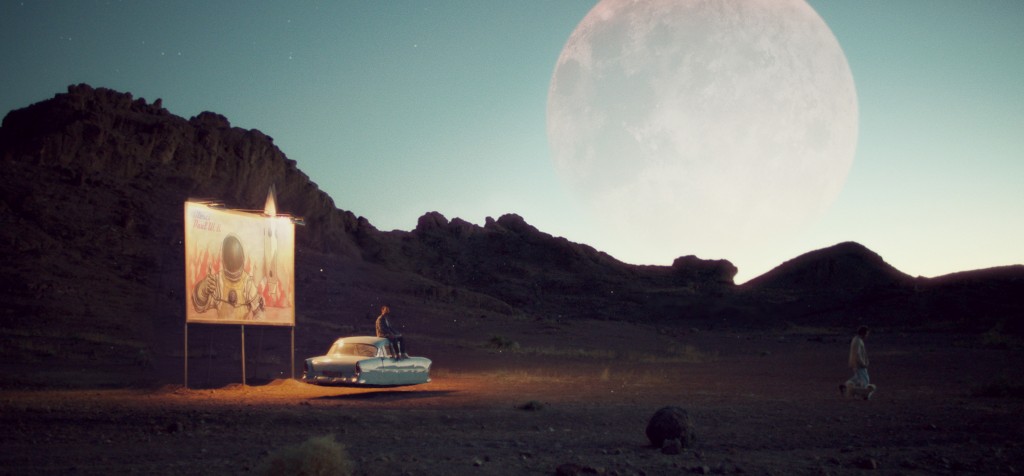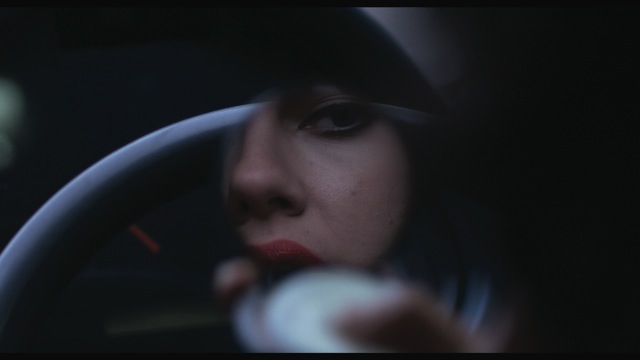
JONATHAN GLAZER’S NEW FILM « UNDER THE SKIN » IS OUT
By Crash redaction
Today, Jonathan Glazer’s third movie « Under the Skin » is coming out in theaters. On this occasion, Crash invites you to look back at our exclusive interview of this mysterious British movie director, published in our last issue, a Cannes Special, Crash #68 The Riviera. « Under the Skin » shows a previously unseen side of Scarlett Johansson, wandering in the Scottish landscape with a mysterious goal. To learn more about Glazer’s vision for this film and for film in general, do not hesitate to (re)read our interview.
THOUGH HE MAINTAINS A MORE OR LESS DISCREET PRESENCE ON THE INTERNATIONAL FILM STAGE, JONATHAN GLAZER IS A DIRECTOR UNLIKE ANY OTHER. THE LONDONER KNOWN FOR HIS MUSIC VIDEOS IN THE 90S AS WELL AS TWO FEATURE FILMS – “SEXY BEAST” AND “BIRTH” – PREFERS TO LET HIS FILMS MATURE OVER TIME, WHILE WORKING HARD TO MAKE SURE HE NEVER DOES THE SAME THING TWICE. HIS LATEST FILM, “UNDER THE SKIN”, IS THE FRUIT OF TWELVE YEARS’ LABOR. AN ADAPTATION OF A
MICHEL FABER NOVEL, THE FILM STARS A FASCINATING SCARLETT JOHANSSON AS AN EXTRATERRESTRIAL ROAMING THROUGH AN
ATEMPORAL SCOTTISH BACKDROP. A MEETING WITH THE MAN BEHIND THIS STRANGE AND POETIC UNIVERSE.
You used to make those amazing music videos in the late 90s, for bands like Massive Attack. Did you stop doing that completely?
Yes, I did stop. I enjoyed it a lot then, but I don’t do it anymore. Occasionally I might make another video clip, but I’m out of it. Not out of music, I mean, but I see music in a very different way right now. When I was working on video clips, the budgets were sufficient for the concepts to be realized without any compromise. That is not the case anymore: budgets are now very low. Maybe giving the right budget to music is just not as interesting as it used to be. Fifteen years back, the music world was very exciting, especially electronic music. The medium wasn’t fully formed, it wasn’t quite finished yet, and the music video as a form of art was still in process.
When did you decide to make feature films?
I don’t know, probably when I was in college. I studied theater design, so I think the idea came to me from there… So from the beginning! Later I had to look at film while making videos and TV commercials. So I guess it was a logical development for me, in light of what I did before and what I had learned.
How did you manage to get the funding to produce your first films?
Well I didn’t write the script of my first movie. Me and the writers, we were working on different things, but they picked me up because I was doing music videos. At the time, lots of people wanted music video directors to get into movies. It’s like a sort gentlemen’s club, you know. Then, the script for “Sexy Beast” was great and the money came in really easily, though it wasn’t much money.
About “Under the Skin”, how did you get the idea to make this film? From Michel Faber’s novel?
My producer Jim Wilson read the book and suggested we work on it, so I read it as well. Then it took about twelve years from reading the book till now! It was a really long development process, but it was fun. I enjoyed the process of getting to the heart of the matter. At first, I was very interested in adapting a book. But I knew I didn’t want to do an illustrative adaptation: I didn’t want to “film the book”, instead I wanted to make something off the book, from the book. So it turned into more of a spark than an adaptation. The book is completely different, but spiritually there’s a relationship.
Writing the script was a rather long journey, right?
I worked with three different writers. Working with the third writer was the longest and most productive period for the script, and the film was eventually made from this version. It’s crazy to go back and think about all the versions that have been written and that could have been made. There are four or five different films in my head that won’t be produced! So during this long writing period we didn’t work on refining just one script. We wrote a script, an entire story, then we threw it away and made it again, and again, and again, until we got it right. At the end we had a very precise script. Not in terms of how the lines had to be acted, but in its deepest intention.
The film has a very peculiar mood, because on the one hand it’s very realistic with Scotland and the city settings, while on the other it’s a sci-fi film. And all this blends together to form a very strange composition. Was this unique mix a deliberate choice on your part?
Sure, everything was a choice. We decided to do something very realistic with this alien, who is the central focus of the movie. I wanted the audience to be with her all throughout the film. To understand her, to understand what she does and how she does it. To feel her, in a way. It was extremely difficult to plan out, but the idea of seeing these two worlds combine and come up against each other was so exciting! And by watching the movie, I think we get almost disconnected from the notion of reality, because we take the alien’s viewpoint. We’re alongside her, we look at things through her eyes and so we have to stand alone and apart from everything to feel like we’re living through an alien eye.
Viewers looking for a classic sci-fi flick may be disappointed because “Under the Skin” is more of an artistic statement. Did you want to reinvent the sci-fi genre?
Not really. The movie doesn’t look like a typical science fiction film, indeed. But that is because science fiction wasn’t the right tool, the right language for it. Somehow this movie was too human to be considered sci-fi. In science fiction there are AI technologies, spaceships, costumes, weird aliens, things like that. I enjoy seeing those things in films when they’re well done, but they had no place in my movie. So we actually ended up with a black screen! It was the only thing that made sense for us, as if this alien’s entity were a black screen. Once we had eliminated all the tropes of science fiction, we ended up with nothing. So that’s when the black screen became our canvas, our mirror, our setting.
The alien is female, very attractive and also dangerous. Is the film a meditation on modern relationships between men and women? Did you want to portray something on this theme?
To be truthful, I was more interested in the human story than the gender story. The gender story is in there because of the alien’s femme fatale appearance, her red lips and black hair. Those are classic codes in sci-fi movies and film noir. They’re archetypes. I made her an archetype – which was very interesting – but that’s all. I read someone saying the film is misogynistic. I don’t think it is. The human story was the one I was concentrating on. For example, her naked body is deeroticized in a way. The nude scene is about her reclaiming her body in a way, because she’s seeing it for the first time. The scene is about anatomy. We can see the sexual potential of the image, but it’s not about that. It’s about a discovery. It’s not erotic. What’s interesting is that I think there is something powerful in it. She reclaims her own image.
Was it easy to film Scarlett Johansson?
Very easy. She had no fear – actually, she had fear but no hesitation. She understood the bravery of the character had to be matched by her own bravery, as well. She couldn’t pull back from that so she had to carry it through. She was great. She did everything we talked about with enormous grace. She was a fantastic actress to work with. We got along very well, and we trusted each other. She was my only choice. With previous versions of the script we had other thoughts concerning different actresses. But once we had the right version of the movie, it was obvious she was our character. The fact that she is Scarlett, that she is so often objectified and that even in this film she uses that affective relationship made her the right choice. But there is so much more going on, too. She’s very powerful. She’s very good in this role and it’s a very complex performance. Sometimes it’s just simple behaviors, and other times you see that she’s there, she’s present. I have to say I’ve always enjoyed films with powerful female leads: actresses like Liv Ullmann and Bibi Andersson in Bergman’s films, or hanna Schygulla in Fassbinder’s films. They’re often more interesting than men.
Did you do a lot of rehearsals before filming?
No, it’s impossible to rehearse this kind of thing. It’s about being in the situation and reacting to it. But we spent time preparing Scarlett: the wig, the lips, the clothes… in order to create the character. The accent, driving in the van, the improvisation… All the characters had the same amount of preparation, because all the other actors in the film are actually ordinary people. Someweren’t even told they were being filmed. Some didn’t know how their scene fit into the story, or they didn’t know where they were being filmed from. No one had a script. Apart from Scarlett, no one knew what we were doing exactly.
Why is there so little dialogue in the film?
Well, because it felt like the movie only needed dialogue when it was absolutely essential, when the alien picks someone out. Otherwise, there was very little to say. We decided to generate meaning through images and behavior. Because the character is an alien, there’s no exposition. We couldn’t have an alien talking about weather, or work, or life or anything like that! We wanted to tell a story using pictures, so the alien just speaks when she has to.
Why did you choose to shoot in Scotland?
Well, the story was set in Scotland in the book and I loved it. It felt like it was remote and there needed to be some remoteness in this story. There also needed to be the city and people, to show her hunting among us. And Scotland is usually photographed much differently than the way we shot it. And the weather, as well, and how that’s so much a part of her experience. It’s not just human interaction, it’s stuff like wind, rain, colors and smells. So feeling the presence of that, it plays on your experience and your senses.
Do you prefer to make films in England or to work on Hollywood productions?
Well, I made a film in New York and I enjoyed it. But it was hard work because I had studio money and dealing with that was really difficult for me. Trying to make the film I wanted in that environment was like dodging bullets. The atmosphere was very combative. But I’m not turning my back on studios and hollywood, I just think it depends on the project. I would love to shoot a film in Los Angeles, but it is unlikely that I would do a studio film. I’m not interested in movies like that. I want my films to be more personal.
How do you think people will respond to the film? Do you even want to think about it?
No, I don’t, really. I think there will be people out there who like it and some who don’t. That is fair enough. We can’t please everyone.
What do you have planned for your next projects?
Well, I don’t know yet, but I’ll come up with something. First of all I have to feel like my current project is finished and behind me. I don’t want to make films on a regular basis, like every year or something. Sometimes I wish my mind was big enough for that, though. So I could work like Fassbinder. he was just… you know, with overlapping his films. he’d be shooting, cutting, writing and shooting, cutting, writing all the way. I wish I could do that but I can’t. For me, it takes time. And I don’t want to do the same thing again. Maybe I end up making the same thing, maybe my films are all the same, but I keep on wanting to try something new.








